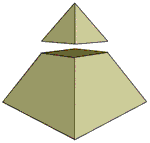Nebraska College Preparatory Academy

Nebraska College Preparatory Academy: Senior Capstone Projects
Date of this Version
2017
Document Type
Presentation
Citation
Senior Capstone Project Poster, Nebraska College Preparatory Academy/Grand Island Senior High School 2017. University of Nebraska-Lincoln
Abstract
Voltaire was not the common Enlightened philosopher. No, he was one of the great ones. And especially critical in the fight for social justice and equality for women. Voltaire did not write about women. Typically, women were seen as weak, fragile, had pale skin, and were very thin. But Voltaire wrote about them in the exact opposite way. They were as strong, resilient, and brave as any man. And they were buxom, plump, and provocative. Voltaire purposefully writes this way to switch the gender roles; to show that women could be anything a man could be. That they could be heroes. Emilie Du Chatulet was more than a lover to Voltaire. Upon her death, Voltaire said, “I have lost one who was my friend for twenty-five years, a great man, whose only defect, was being a woman”. He meant that women were always seen as lessers of men, even though they could be just as great.
The conclusions one can draw from Voltaire was that he was an immensely prowomen philosopher, proving time and time again in his writings and personal life the gratitude and respect he held toward women. Voltaire purposefully wrote women characters to break traditional gender roles and to criticize social constructs which unfairly prejudice women and thus lead to a culture of intense rape and suffering of women. In Voltaire’s personal life, he denounced critically, many social norms and their associated social constructs. Denouncing them as horrible conventions to subjugate women under men. As if they were slaves.
Further Research: Further research ideas might include how Voltaire shaped a feministic wave within the Enlightenment and how this changed France and the rest of the world.
Included in
Comparative Literature Commons, Continental Philosophy Commons, European Languages and Societies Commons, Feminist Philosophy Commons, French and Francophone Language and Literature Commons, History of Philosophy Commons, Women's Studies Commons


Comments
Copyright © 2017 Esdras Castaneda